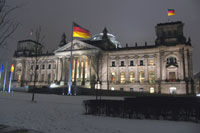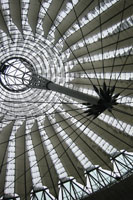Germany

From Charlemagne to Bismark to the World Wars to the Berlin Wall, Germany has been in the heart of Europe. Germany has over 80 million people and is the largest economy in Europe. We will visit Berlin and Dachau.
Our focus in Germany is on the political history of the country and how it has shaped European history in the 20th century
Berlin
Berlin is the famous, formerly divided, capital of Germany. Berlin was first divided in 1945 and the Berlin wall was erected in 1961 and remained until November 9, 1989. The city has two town centers: the zoo station and the Kurfurstendam in the West and the Mitte along Unter den Linden and Alexanderplatz in the East.
In Berlin, we will:

- See the landmark Brandenburger Tor (Brandenburg Gate), a symbol of former division and now reunification.
- Stroll the aristocratic Unter den Linden of old Berlin to Alexanderplatz with the world clock and the TV tower. On the way we will see the Schlossbrucke (Palace Bridge), the Kronprinzen-Palais (Crown Prince Palace) and Humbald University.
- Visit Checkpoint Charlie at the junction of Friedrihstrasse and Zinnerstrasse
- Visit the famous Reichstag (Parliament)
Dachau

On the outskirts of Munich, we will visit the city of Dachau and the Dachau concentration camp memorial. Built in 1933, the concentration camp processed 200,000 prisoners and killed over 30,000 of them.
We will visit this camp to pay our respects and remember one of the darkest moments in European history.
Note: Itinerary may change without notice. Adaptations are made from semester to semester.